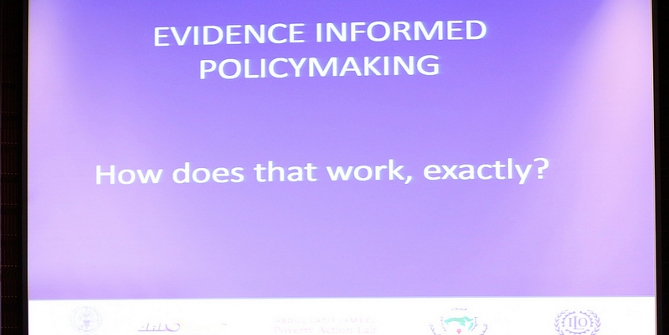 In the face of global climate change, Indigenous peoples and other community caretakers enhance biodiversity and sustainability through their ecological practices and political movements. David Myer Temin terms these activities as “earthwork”, writing that these efforts are necessary to ensure the continuance and repair of the web of life. Current environmental governance practices, he argues, sustain deep power imbalances that systematically denigrate the groups that do the work of protecting their lands and waters. Taking earthwork seriously means moving away from mainstream ideas about transition from fossil-fuels in favor of more internationalist and justice-oriented proposals such as the People’s Green New Deal and The Red Deal.
In the face of global climate change, Indigenous peoples and other community caretakers enhance biodiversity and sustainability through their ecological practices and political movements. David Myer Temin terms these activities as “earthwork”, writing that these efforts are necessary to ensure the continuance and repair of the web of life. Current environmental governance practices, he argues, sustain deep power imbalances that systematically denigrate the groups that do the work of protecting their lands and waters. Taking earthwork seriously means moving away from mainstream ideas about transition from fossil-fuels in favor of more internationalist and justice-oriented proposals such as the People’s Green New Deal and The Red Deal.
A global majority composed of Indigenous peoples, peasants, and working-class groups drive the healthy functioning of ecosystems. They create biodiversity and enhance sustainability through their everyday ecological practices and in their political movements for sovereignty over their lands and waters. These activities—“unrecognized and unpaid green jobs” in a very expanded sense—are what I call earthwork. Earthwork is the direct labor that goes into reproducing sustainable relations between people and planet.
Earthwork
Earthwork is social, ecological, and political: It is embedded in place-based governance systems that prioritize community caretaking of the earth. These are carried out through modes of political sovereignty and land tenure of Indigenous and other local communities. At the same time, they are made precarious by the fact that many states frequently refuse to recognize the rights of such communities altogether. Relatedly, earthwork’s value is also cared for politically in many projects of defending the earth against militarized forms of extractive accumulation, from fossil fuel corporations to wildlife NGOs promoting “fortress conservation.”
Such mobilizations against dispossession can be found all over US and global politics. They include the NODAPL movement of the Great Sioux Nation against the Dakota Access Pipeline in the US and the struggle of the Waorani people alongside Ecuadorian civil society to stop oil drilling in the Yasuní national park.
Like an array of other caring activities (e.g., childcare, elder care, housework, food preparation), earthwork is necessary to ensure the continuance and repair of the web of life. What is frequently missed, however, is that earthwork is quite widespread in its biodiversity-enhancing benefits and central to local and global sustainability in its effects. It turns out that—from the Amazon rainforest to Yellowstone National Park—many ecologically notable areas that western scientists once presumed to be pristine nature are, in fact, the product of generations upon generations of Indigenous peoples’ and other local communities’ place-based knowledge and intentional caretaking of the earth. To quote a now oft-cited statistic, Indigenous peoples (here, narrowly defined) make up only 5 percent of the world population but the territories they caretake contain 80 percent of the world’s biodiversity.
Problems with current environmental governance practices
In many policy circles, there are no shortage of romanticized (often extractive and uninvited) appeals made among policymakers to “learning from” these Indigenous knowledges. But this focus on learning from Indigenous peoples’ knowledge often evades or outright obscures the core material challenges raised by earthwork, which are questions of power and domination above all. Namely, current environmental governance practices sustain deep power imbalances that systematically denigrate—and, indeed, ensure unpunished violence against—these groups that do much work of protecting their lands and waters. The real pressing question is how to bolster the enforceable powers of earth protectors, to enable the sustained protection of their land rights and sovereignty as peoples on their terms.
In many cases, this also means simply giving the land back to Indigenous peoples’ jurisdiction. Ojibwe scholar David Treuer has argued, for example, that the US national parks—created on land stolen from Indigenous peoples—can and should be returned to the stewardship of Indigenous peoples via the management of an inter-tribal consortium.

“funcrunch-20170126-1652” (CC BY-NC-SA 2.0) by Pax Ahimsa Gethen/funcrunch
Markets will not solve the climate crisis
Considering these alternatives becomes even more urgent in addressing the climate crisis, because state and international efforts to make capitalism more environmentally sustainable do not work. We have now seen at least thirty years of failed claims that policy can nudge, gently prime, or artfully design markets to work toward environmental ends, and that this alone will facilitate a transition away from the fossil fuel-based economy. The problem is that such efforts do not address—and even double down on—the root causes of climate change: an unequal capitalist world-system driven to ceaseless extraction of natural resources in the name of profit.
Such a system ensures a path toward unprecedented global heating and biodiversity loss, which are of course the outcomes we need to divert. (Even so-called “optimistic” outcomes on warming are dire for much of humanity.) Yet so-called “green” capitalism is now only further entrenched. For example, mechanisms like carbon offsets are touted as planet-saving. In reality, they are designed to ensure corporations can go ahead with disastrous levels of fossil fuel emissions by paying others to protect nature elsewhere. It is a self-defeating logic.
Those protections for “nature” are also created through practices like “green-grabbing,” whereby Indigenous and local communities with longstanding sustainable relationships to their territories are kicked off their lands in the name of renewable energy production or biodiversity conservation. Many Indigenous activists have called these practices a new form of colonialism, “green colonialism.” Ironically, green colonialism undermines grassroots sustainability and biodiversity so that elite actors in private firms, global non-profits, and even some states can brand themselves as environmental leaders.
From the Green New Deal to the Red Deal
Taking earthwork seriously has other broad implications for the task of tackling climate change. Consider how in the US and the western democracies generally, environmental policymakers’ discussions of a sustainable transition away from fossil-fuels largely ignore or dismiss the claims of the global majority. For example, the framework of a “Green New Deal” (GND) first pushed in US progressive policy circles in 2019 invoked the New Deal of FDR. The GND was cut down massively in ambition to the private sector-driven transition in the 2022 passage of the Inflation Reduction Act.
These mainstream transition paradigms have touted the creation of “green jobs” in very narrow nationalist terms that implicitly presume the violent erasure and exclusion of many movements led by working people, such as Indigenous peoples both in North America and beyond. Those globally doing earthwork face the fact that their ecological labor is not only taken for granted but also under constant threat. The underlying reality of global supply chains for fossil fuels and minerals to make renewable alternatives is that the US continually exports the adverse consequences of environmental degradation and engages in astonishingly brutal labor exploitation of the most disempowered communities within and outside its borders.
Indeed, every mainstream version of a green transition, including the more progressive GND, presumes US geopolitical hegemony (including notable effects of US military emissions), unfettered economic growth, and supply chain dominance, which in turn erases alternative programs based on privileging more widely dispersed democratic decision-making and ecologically sound development geared towards the interests and needs of the global majority (which is mainly in the global south). Even within the US, creating good and stable “green jobs” for many requires building unionized multiracial working-class power across international lines. The latter is not guaranteed by offering carrots to private firms, however green, nor does protectionist geopolitical competition with Chinese suppliers bode well in this regard.
In response, it is essential to consider more internationalist and justice-oriented proposals that square decarbonization with the need to minimize mining-induced harm and privilege robust popular access to land. These proposals include what scholar Max Ajl calls a “People’s Green New Deal,” which is based on principles of agro-ecology and a reparative focus on generating global south social infrastructure, or what the US-based Indigenous activist collective The Red Nation calls “The Red Deal.”
- This article is based on the paper, “Wages for Earthwork” in American Political Science Review.
- Please read our comments policy before commenting.
- Note: This article gives the views of the author, and not the position of USAPP – American Politics and Policy, nor the London School of Economics.
- Shortened URL for this post: https://wp.me/p3I2YF-dVm






